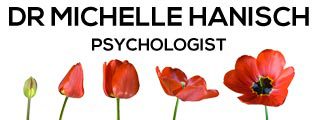
First let me give some resources that might be helpful during this time and then I’ll chat about loneliness and my take on it.
So….. Coursera is offering a range of courses for free.
There’s this one: Mind Control: Managing Your Mental Health During Covid-19. There are 4 sections on depression, anxiety, not OD’ing on news and strategies to make isolation easier.
And this one: Health Behaviour Change: From Evidence to Action. It look s quite theoretical which may not be everyone’s cup of tea but understanding health behaviour at a time like this can be quite helpful. When we know what maintains good behaviours we have more in our toolbox to be able to maintain them at home instead of turning to wine and chocolate.
And finally there’s this: What Social Distancing Does to Your Brain. No blurb needed I think
And now How to Manage Loneliness
There will be many trying things during lockdowns and social isolation and loneliness may be the most challenging of all for some people.
Being isolated from others is quite traumatic for us. If you think about the worst punishment in prison – isolation – also known as “cruel and unusual punishment”. If we were isolated from our tribe it greatly reduced our chance of survival (back in cave man days). Because our nervous system hasn’t really changed, isolation can bring a similar feeling with it – dread, anxiety, despair.
Fortunately we’re not in a situation where we don’t hear human voices or where we don’t see people at all. We can still interact via messenger, Skype or even 1:1 while exercising.
You have probably read people’s newsletters, blogs, articles etc encouraging you to stay connected via any means you can. That’s great advice but I’d like to offer you something you may not have thought of and may not have read elsewhere.
Loneliness can quite often be a disconnection from yourself.
We’ve all had to adjust our behaviours at some point to be acceptable to others. Some of us have to do that more than others. Some have had to hide emotions, hide parts of themselves, or develop a whole new self that their early environments told them were acceptable. When that happens we lose touch with our true selves.
Without access to our own authentic self, there is an inherent loneliness. So you can imagine what happens when we’re actually alone with no distractions – that loneliness amplifies.
If you feel like this could be you, there are some great things you can do during this time to build the bridge back to your true self.
If you have had to be someone else to gain approval or love or protection or whatever it may have been, you will have lost connection to your true opinions and emotions and needs.
You can practice getting to know them again. You can ask yourself these questions: What do I really feel/think about this? What do I need right now?
You can do stream of consciousness writing around your needs/opinions/ emotions and read back over it in a few days.
You can start a journal with this exercise: repeatedly start a sentence with “I am……..” and add as many ends to that sentence as you can, focusing on your opinions/feelings/needs.
You can write your Best Possible Future Self where you imagine yourself in the future. You write it like it’s a diary entry on a normal day that you try to make as emotional as possible (how good it feels to be doing this etc). It’s a great way to determine what’s important to you (which will include your needs and opinions) .
And finally, if it’s your thing you can try meditation. Meditation is great way to bring you back to yourself in a non-reactive, non-judgemental way. Plus there are a million other amazing things meditation does for you and your brain. Why not give it a go – there may not be much else to do 🙂
